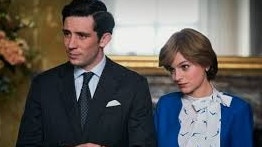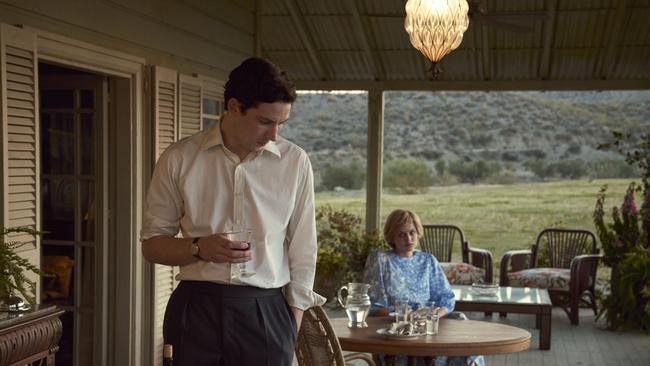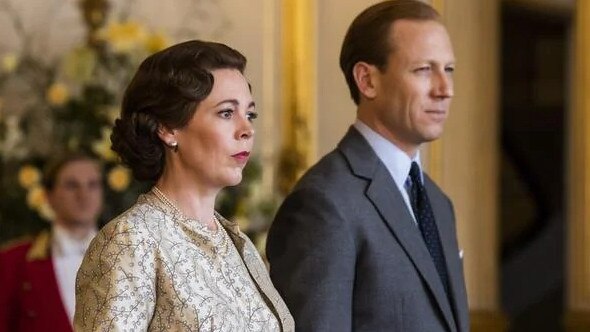The Crown is addictive but its fictions should carry warning
It might be addictive viewing but the truth-twisting of the Netflix drama reduces it to propagandistic soap opera.

People around the world have been transfixed by two smash-hit drama series running on Netflix. One has tapped into the overlooked potential of millions, particularly girls and young women. The other has caused outrage over the way it has hijacked recent history to distort the vision of millions.
The former is The Queen’s Gambit, the story of an orphaned Kentucky child who becomes a chess prodigy and battles her demons to become the world’s greatest chess player. The drama is said to have inspired girls around the world to take up chess, a sport dominated by men.
The latter is the fourth series of The Crown, which deals with the period of Margaret Thatcher’s premiership, the courtship and marriage of the Prince and Princess of Wales and the disintegration of their marriage. This has drawn intense criticism for what critics have called serial falsehoods and distortions, in particular the character assassination of the Duke of Edinburgh and Prince Charles.
Each of these productions takes a profoundly different approach to reality. The Queen’s Gambit is based on a novel by Walter Tevis. In his own childhood, Tevis spent a year recuperating from chronic illness in a San Francisco convalescent home where his parents abandoned him.
A relative finally put up the money to bring him to Kentucky where his parents were living. He described his mother as controlling, his father as an alcoholic. Tevis subsequently sought solace from his misery by playing chess and pool, but drank to excess and gambled while his writing career repeatedly sparked and then fizzled.
His fictional heroine, Beth Harmon, spends her early childhood in an orphanage after surviving a car accident which kills her mother. She is then adopted and becomes a chess phenomenon while battling drug addiction, alcoholism and buried trauma.
Tevis sublimated real experience through fictional characters. The problem with The Crown, by contrast, is that it purports to tell us the truth about the royal family and the monarchy. Its writer, Peter Morgan, concedes he made it up but claims to have based his script on an account built up from numerous sources which embodies a more general truth.
It doesn’t. What he has written is merely his own version of reality, one which has been strenuously denied. Friends of Prince Charles say the way he is portrayed as brutally uncaring to Diana and betraying her from the start of their marriage is a calumny.

Two Royal Navy commanders who fought in the Falklands War have accused the show of “offensively misrepresenting” the Queen by depicting her as jealous of Mrs Thatcher’s popularity in having defeated the Argentinian invaders.
And the scene presenting the Duke of Edinburgh as threatening Diana like a mafia gangster has been denounced by the royals’ biographer Hugo Vickers as “the most wretched and disgraceful” of the show’s falsehoods.
The culture secretary, Oliver Dowden, has now demanded that Netflix screen a health warning at the start of each episode that The Crown is a “work of fiction”.
From Anthony Trollope to Aldous Huxley and George Orwell, writers have disguised real people in their fictional characters. Readers can guess who the character is based on, but they know it’s still a fantasy in the writer’s mind. The lucrative draw of The Crown, though, is that it supposedly tells us a set of truths.
With the principal exception of the ludicrously caricatured Margaret Thatcher, the drama is compelling, often brilliantly acted and stunningly produced. The distorted images that it conveys will therefore be assimilated by millions as their mental pictures of these public figures.
There is one other key similarity – and an important difference – between these dramas. Both present traditional family life as dysfunctional, brutal and uncaring. In The Queen’s Gambit, Beth and her mother are abandoned by Beth’s father. Beth’s control-freak adoptive father leaves her adoptive mother, whose talent as a pianist he has discouraged and who eventually drinks herself to death.
In The Crown, family dysfunction and cruelty are pinned on the aristocracy and the monarchy. A comparison is drawn between the royals’ enthusiasm for hunting, trapping and slaughtering beautiful animals and the way they hunt, trap and destroy Diana.

The Queen is presented as incapable of showing motherly feeling. And the Queen Mother, justifying to a furious Princess Margaret (herself presented as a victim of the royal family) the heartless abandonment of her mentally handicapped relatives, states that there was no alternative. The monarchy had to be preserved, she says coldly, against a likely public belief that the royal blood-line contained hereditary imbecilism.
Small wonder, then, that some royal insiders view The Crown as thinly disguised republican propaganda.

The portrait of family life in The Queen’s Gambit may not be typical of family life in general but it is drawn from the author’s own traumatic childhood experiences. It therefore does not come across as ideological propaganda but instead rings psychologically true, even though it is a work of fiction.
The portrait of royal family life in The Crown is not drawn from reality, because no writer can ever know what goes on inside the heads of those in public life. It purports to be true but comes across as propaganda. It is a soap opera and therefore needs to be labelled as fiction, the genre to which it properly belongs.
The Times







To join the conversation, please log in. Don't have an account? Register
Join the conversation, you are commenting as Logout